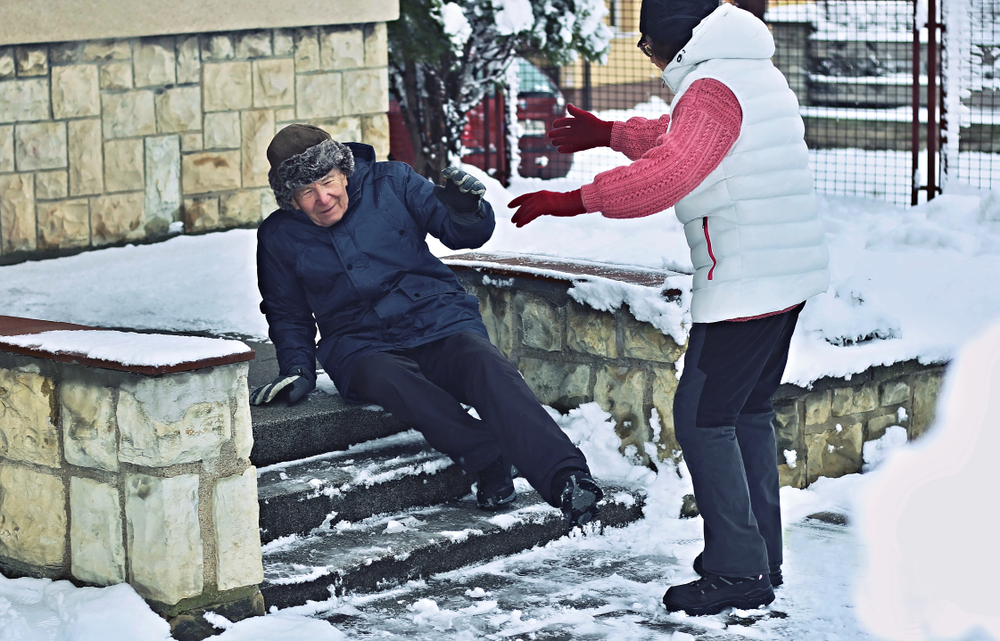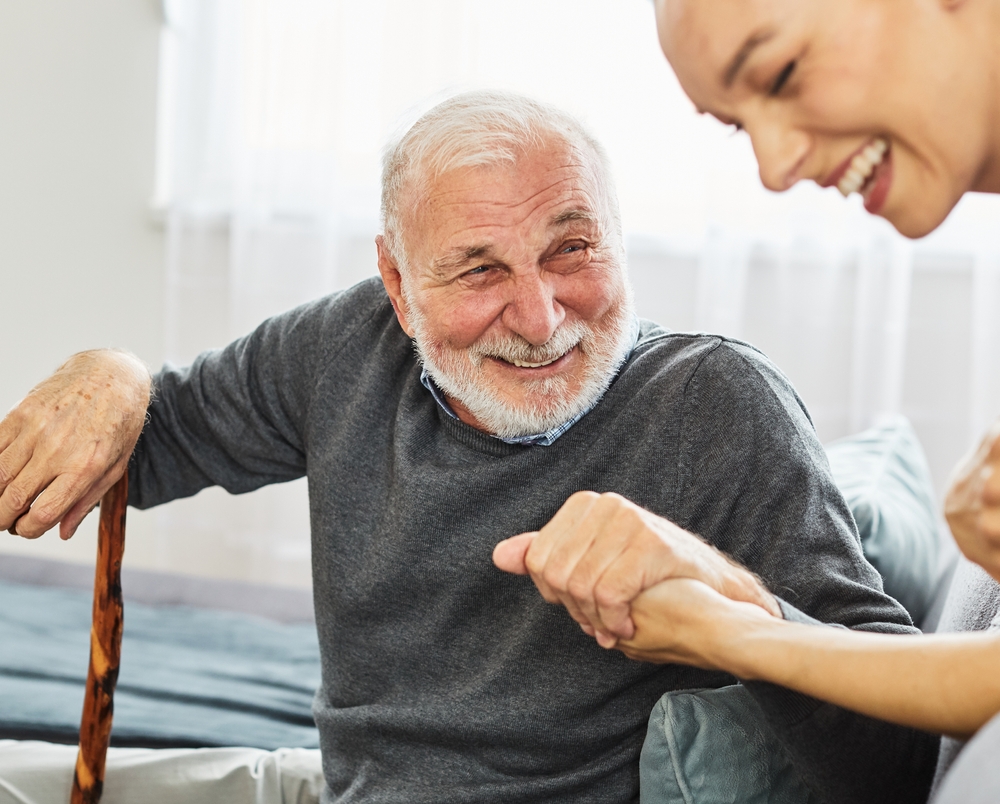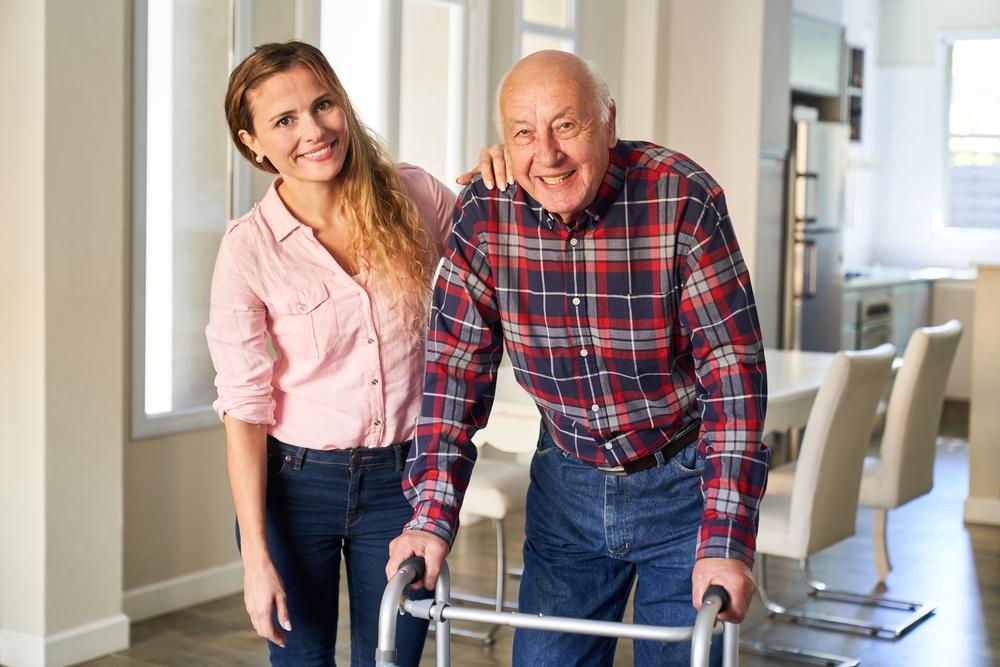Make an Appointment
A stroke can change how a person moves, speaks, and experiences the world. It can affect physical strength, communication, memory, and even emotions. Beyond the physical challenges, many stroke survivors face a loss of confidence, they may feel frustrated, withdrawn, or uncertain about their future.
For families and carers, it’s common to ask:
- How can someone rebuild confidence after a stroke?
- How do speech therapists and occupational therapists work together to help?
- What practical steps motivate someone to keep trying, even when recovery feels slow?
The good news is that recovery after stroke is possible, thanks to the brain’s natural ability to rewire itself through neuroplasticity. Confidence doesn’t just come from physical improvement, it grows when people feel capable, supported, and connected.
This guide explores how speech therapy and occupational therapy work hand in hand to help stroke survivors regain independence, reconnect with others, and build confidence for life after stroke.

Understanding the Confidence Challenges After Stroke
Before looking at therapy solutions, it’s important to understand why confidence often declines after a stroke and what emotional barriers survivors may face.
Physical and Functional Changes
After a stroke, the body may not move the way it used to. Survivors often experience:
- Weakness or paralysis on one side of the body (hemiplegia or hemiparesis)
- Reduced balance and coordination, making walking or standing harder
- Fatigue and slower movements, making daily tasks more tiring
- Difficulty swallowing (dysphagia) or speaking clearly
These physical changes can make everyday routines feel daunting, leading to frustration and self-doubt.
Communication and Cognitive Challenges
- Aphasia (difficulty speaking, understanding, reading, or writing) makes it harder to express thoughts
- Memory lapses and difficulty concentrating can affect confidence in social or work situations
- Problem-solving difficulties may make once-simple tasks overwhelming
When people feel misunderstood or struggle to follow conversations, they may withdraw from social interactions.
Emotional and Social Impacts
- Survivors often experience low self-esteem, depression, or anxiety after a stroke
- They may feel like a “burden” on their family
- Fear of failure or embarrassment can stop them from trying new things
Understanding these challenges is key to building realistic, compassionate support plans.
For more on stroke recovery, visit Stroke Foundation Australia – Life After Stroke.
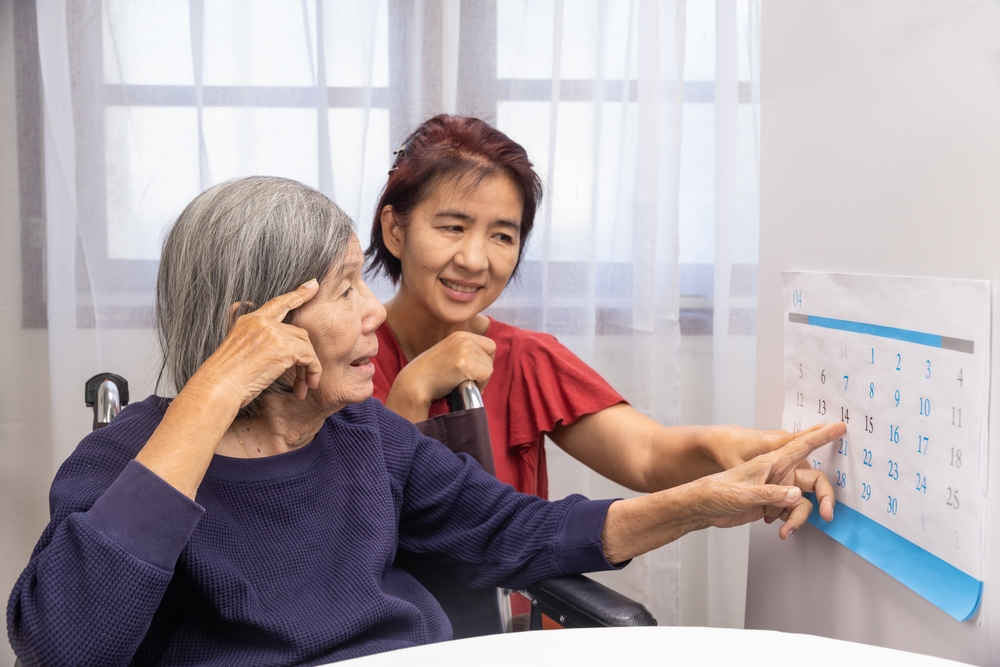
How Speech Therapy Helps Rebuild Confidence
Communication is central to confidence. When a stroke affects speech or swallowing, it can impact every part of life, from ordering a coffee to telling loved ones how you feel. Speech therapy helps by restoring communication skills and making interactions easier and more successful.
Improving Speech and Language Skills
Speech pathologists use evidence-based therapy to:
- Strengthen the muscles used for speaking
- Practice word retrieval and sentence-building for clearer expression
- Improve understanding of spoken and written language
- Slow speech rate and enhance articulation
Even small improvements, like being able to greet a friend or answer a simple question, can boost confidence significantly.
Supporting Safe Swallowing
Difficulty swallowing is common after stroke. Speech therapists:
- Assess swallowing safety and recommend texture-modified foods or drinks
- Teach safe swallowing techniques to reduce coughing or choking
- Provide exercises to improve swallowing strength and coordination
Eating confidently in front of others is a big step toward regaining normal routines and social life.
Teaching Communication Strategies
Speech therapists also teach practical strategies like:
- Using gestures, writing, or communication boards when words are hard to find
- Encouraging family members to use yes/no questions and give extra time for responses
- Using apps and technology to support daily communication
Boosting Social Confidence
Therapists often practise real-life conversation scenarios, like introducing yourself, ordering food, or making a phone call. These rehearsed situations help people feel more prepared and confident in the community.
For more on speech therapy services, visit Speech Pathology at Physio Inq.

How Occupational Therapy Restores Independence
Confidence also grows when people can manage daily routines independently. Occupational therapy focuses on helping stroke survivors adapt, relearn skills, and participate in the activities that matter most to them.
Relearning Daily Living Skills
OTs help survivors regain independence in personal care tasks like:
- Dressing, grooming, and toileting
- Preparing simple meals and doing light housework
- Managing finances or medications
When someone can dress themselves or make their own breakfast again, it builds a huge sense of achievement.
Adapting the Home Environment
- Installing grab rails, non-slip mats, or adaptive kitchen tools
- Rearranging furniture for safer movement
- Recommending mobility aids like wheelchairs or shower chairs
A safer, more accessible home reduces fear of falling or failing, helping people feel more in control.
Cognitive and Emotional Rehabilitation
OTs work on:
- Memory strategies using checklists, calendars, and smartphone reminders
- Problem-solving exercises to rebuild planning and organisational skills
- Relaxation and pacing strategies to manage fatigue and emotional stress
Returning to Work, Hobbies, or Community Activities
OTs help survivors explore meaningful activities, like:
- Returning to work with modified duties
- Joining social groups or leisure activities
- Volunteering or reconnecting with community events
These experiences rebuild purpose and self-worth beyond physical recovery.
Family and Carer Education
OTs involve carers and family in therapy to ensure they can support independence without taking over, a key balance for confidence-building.
For more OT resources, visit Occupational Therapy at Physio Inq.

How Speech and OT Work Together to Build Confidence
While speech therapy and occupational therapy focus on different areas, they work hand in hand to support a holistic recovery.
Combining Communication and Functional Goals
For example:
- A speech therapist may practice clear pronunciation for ordering a coffee, while the OT helps with the physical task of handling money or navigating a café.
- Speech therapy may improve conversation skills, while OT builds confidence to attend social events where those skills can be used.
Coordinated Therapy Sessions
Therapists may co-treat in joint sessions, such as:
- Cooking therapy, where the OT helps with physical tasks like chopping, and the speech therapist supports reading the recipe or naming ingredients
- Community outings, where OT manages mobility and safety, while speech therapy focuses on social interaction with others
Building Motivation Through Achievable Wins
Working together, OTs and speech therapists help survivors:
- Set realistic, step-by-step goals that feel achievable
- Celebrate small improvements in speech, mobility, or self-care
- Rebuild self-esteem by showing that progress is possible
Encouraging Long-Term Confidence
Together, both therapies help survivors:
- Reconnect with family and friends through better communication
- Regain independence in the home and community
- Feel empowered to set new goals beyond basic recovery
When someone can express themselves, manage their own routines, and feel safe in social settings, confidence naturally grows.
How Families Can Help Motivate After a Stroke
- Be patient and give extra time for speech and tasks
- Encourage therapy attendance and home practice
- Focus on what the person can do, not just what’s difficult
- Celebrate small wins, like walking a little further or speaking a new word
- Avoid taking over—support independence wherever possible
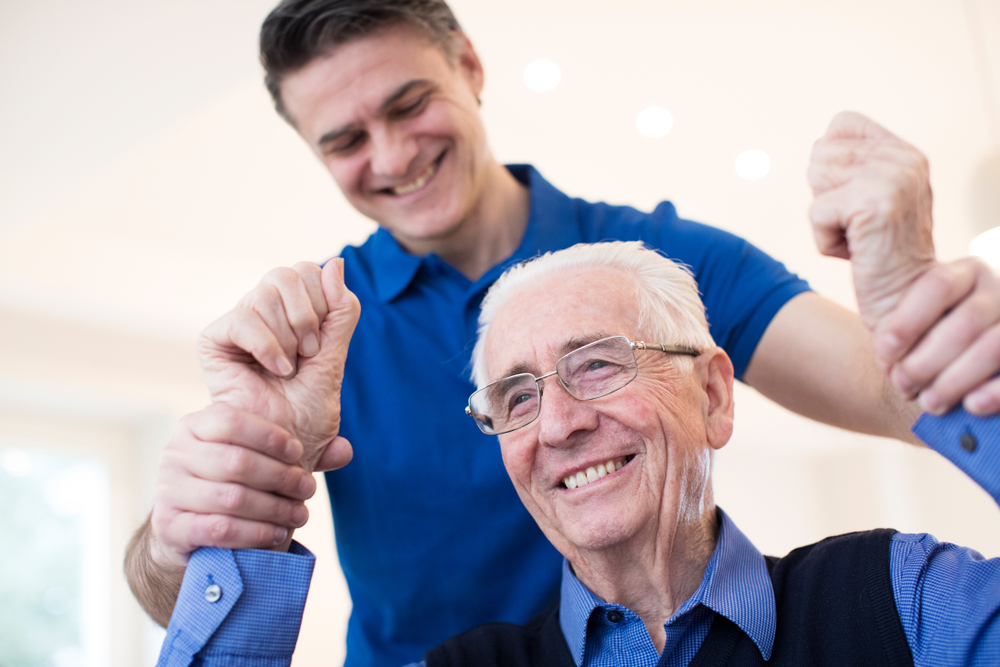
Frequently Asked Questions (FAQs)
How do you rebuild confidence after a stroke?
By combining therapy, emotional support, and achievable goals. Small successes in communication, daily tasks, and social activities help survivors feel capable and valued again.
How can a speech and language therapist help with a stroke?
They improve speech clarity, language understanding, and swallowing safety while teaching strategies for more confident communication.
How can an occupational therapist help someone with a stroke?
They help relearn daily living skills, adapt the home environment, improve cognitive function, and support reintegration into the community.
How do you motivate someone after a stroke?
Encourage therapy, celebrate small wins, keep routines simple, involve them in decisions, and focus on meaningful activities that spark interest.

A stroke affects more than the body, it can impact confidence, independence, and identity. But with the right support, survivors can rebuild their lives. Speech therapy helps them find their voice again, while occupational therapy restores independence in daily routines. Together, these therapies create a powerful pathway to recovery, helping survivors reconnect with themselves and the world around them.
Next Step
If you or a loved one are recovering from a stroke and want to regain confidence and independence, you can refer them for a tailored allied health assessment.
Refer someone for an appointment
Our team of speech pathologists and occupational therapists will work together to create a personalised recovery plan focused on communication, independence, and confidence-building.

Date Published: Monday, August 4, 2025
Locate a Occupational Therapy
Service Near me
Get the experience & convinence you deserve to support your or a loved one's allied health needs.
Our Occupational Therapy team are currently serving & taking appointments in the following states and regions in Australia:
Need to get into direct contact with ur Client Services team? We're all ears. Call our team directly on 1300 731 733

